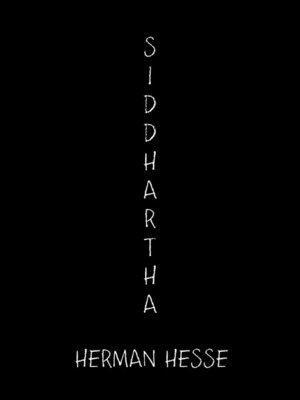
Sign up to save your library
With an OverDrive account, you can save your favorite libraries for at-a-glance information about availability. Find out more about OverDrive accounts.
Find this title in Libby, the library reading app by OverDrive.



Search for a digital library with this title
Title found at these libraries:
| Library Name | Distance |
|---|---|
| Loading... |
Siddhartha (1922) by Hermann Hesse is a novel whose title character is an exceedingly intelligent young Brahman, a member of Hindu's highest caste, who leads an ostensibly charmed and wealthy life, yet is existentially hollow. Originally written in Hesse's native German, Siddhartha is his 9th and most famous work. It wasn't published in the U.S. until 1951, but would achieve cult status there during the turbulent social crises of the 60s and 70s. Hesse had difficulty writing Siddhartha, which took him several years, as he felt he could not achieve a similarly enlightened state as his protagonist.During Siddhartha's journey of self-discovery he delves into religious philosophies such as Hinduism, Buddhism, and asceticism, denying the physical body to reach enlightenment. Gradually he realizes that these austerities disrupt life's unity by denying the wonders of the physical body. So from here Siddhartha goes out for a life of sensuous physical pleasures and material success. With vigor he pursues the world of business, and becomes a fantastic lover. Once again he sees these excesses aren't the true path, that they prove too shallow and artificial, so once again he sets out to find spiritual fulfillment. Finally Siddhartha, who was once a hermit, twice a prince, and many times a lover, becomes a simple ferryman. The daily ritual of shuttling passengers across a river - and the spiritual and natural gifts which the waters provide - are a source of great fulfillment, and the key to the Siddhartha's enlightenment.







